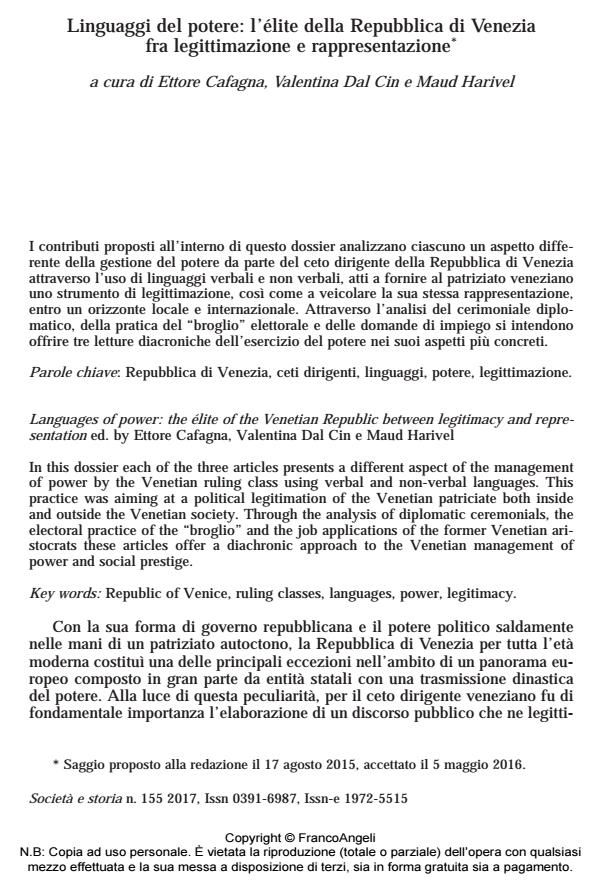Languages of power: the élite of the Venetian Republic between legitimacy and representation
Journal title SOCIETÀ E STORIA
Author/s Ettore Cafagna, Valentina Dal Cin, Maud Harivel
Publishing Year 2017 Issue 2017/155
Language Italian Pages 4 P. 1-4 File size 22 KB
DOI 10.3280/SS2017-155001
DOI is like a bar code for intellectual property: to have more infomation
click here
Below, you can see the article first page
If you want to buy this article in PDF format, you can do it, following the instructions to buy download credits

FrancoAngeli is member of Publishers International Linking Association, Inc (PILA), a not-for-profit association which run the CrossRef service enabling links to and from online scholarly content.
In this dossier each of the three articles presents a different aspect of the management of power by the Venetian ruling class using verbal and non-verbal languages. This practice was aiming at a political legitimation of the Venetian patriciate both inside and outside the Venetian society. Through the analysis of diplomatic ceremonials, the electoral practice of the "broglio" and the job applications of the former Venetian aristocrats these articles offer a diachronic approach to the Venetian management of power and social prestige.
Keywords: Republic of Venice, ruling classes, languages, power, legitimacy.
- Quale storia della società? Uno sguardo sull'epoca moderna Paola Bianchi, in SOCIETÀ E STORIA 178/2023 pp.711
DOI: 10.3280/SS2022-178005
Ettore Cafagna, Valentina Dal Cin, Maud Harivel, Linguaggi del potere: l’élite della Repubblica di Venezia fra legittimazione e rappresentazione in "SOCIETÀ E STORIA " 155/2017, pp 1-4, DOI: 10.3280/SS2017-155001